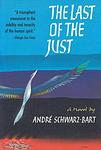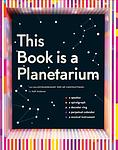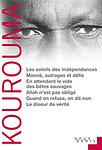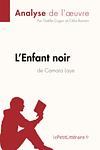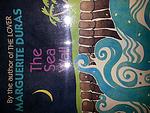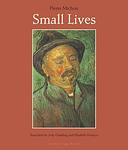The Greatest French "Fiction, Social & Cultural Fiction" Books Since 1950
Click to learn how this list is calculated.
This list represents a comprehensive and trusted collection of the greatest books. Developed through a specialized algorithm, it brings together 286 'best of' book lists to form a definitive guide to the world's most acclaimed books. For those interested in how these books are chosen, additional details can be found on the rankings page.
Genres
Social & Cultural Fiction is a literary category that encompasses novels and stories that delve into the complexities of society and culture, exploring themes such as class, race, gender, and identity within specific social contexts. These narratives often provide a lens through which readers can examine the intricacies of human relationships and the impact of cultural norms and societal structures on individuals and communities. By offering a fictional yet reflective portrayal of real-world social dynamics, this genre invites readers to gain a deeper understanding of the diverse experiences that shape our world. Authors in this category frequently use their characters and settings to comment on contemporary issues, challenge prevailing ideologies, and provoke thought about the possibility of social change, making Social & Cultural Fiction a powerful tool for empathy and a mirror for the ever-evolving human condition.
Countries
Date Range
Reading Statistics
Click the button below to see how many of these books you've read!
Download
If you're interested in downloading this list as a CSV file for use in a spreadsheet application, you can easily do so by clicking the button below. Please note that to ensure a manageable file size and faster download, the CSV will include details for only the first 500 books.
Download-
1. The Mandarins by Simone de Beauvoir
"The Mandarins" is a novel that explores the personal and political lives of a group of intellectuals in post-World War II France. The narrative delves into their struggles with ethical dilemmas, political ideologies, and personal relationships in a rapidly changing world. The book is known for its exploration of existentialism and feminism, providing a vivid portrayal of the human condition and the complexities of freedom.
-
2. Suite Française by Irène Némirovsky
"Suite Française" is a two-part novel set during the early years of World War II in France. The first part, "Storm in June," follows a group of Parisians as they flee the Nazi invasion. The second part, "Dolce," shows life in a small French village under German occupation. The novel explores themes of love, loss, and survival, and provides a unique perspective on life in France during the war. The book was written during the war but was not discovered and published until many years later.
-
3. The Last Of The Just by André Schwarz-Bart
The book is a poignant and harrowing narrative that follows the tragic history of the Levy family over eight centuries, focusing on the lineage of the "Just Men" - thirty-six pure souls in each generation said to bear the sufferings of the world. The story culminates with the life of Ernie Levy, who, despite the encroaching horrors of the Holocaust, maintains an unwavering faith in human goodness. His journey through the ghettos and concentration camps of World War II Europe is a testament to the endurance of the human spirit in the face of unspeakable evil, as he upholds his family's legacy of compassion until his last breath.
-
4. The Roots of Heaven by Romain Gary
The novel is set in post-World War II French Equatorial Africa and follows Morel, a French environmental activist who is fighting to protect elephants from extinction. Morel's crusade against elephant poaching not only draws the attention of other Europeans living in Africa, but also inspires a range of African characters to join his cause. The narrative explores themes of freedom, nature, and the struggle against colonialism and commercial exploitation.
-
5. Things: A Story of the Sixties by Georges Perec
This novel follows the lives of a young couple living in Paris during the 1960s. The couple, both freelancers, dream of a luxurious lifestyle filled with expensive goods and high-class culture. However, they struggle to achieve their aspirations due to their low income. The book explores themes such as consumerism, societal pressure, and the gap between dreams and reality, providing a critical look at the materialistic desires and ambitions of the young generation during the sixties.
-
6. The Vice-Consul by Marguerite Duras
This novel follows the story of three lonely, dispossessed people in Calcutta, India: a troubled former French diplomat, a young French woman haunted by her past, and a poverty-stricken Indian woman. As their lives intersect, they grapple with desire, despair, and the struggle for redemption. The narrative is a complex exploration of colonialism, privilege, and the human condition, told through the lens of these three characters' tragic and intertwined lives.
-
7. The Planetarium by Nathalie Sarraute
In "The Planetarium," the narrative delves into the complex web of human relationships and the subtle power dynamics within a Parisian family. The story unfolds through a series of internal monologues and fragmented conversations, focusing on a young writer who seeks recognition and support from his self-absorbed aunt. The aunt, preoccupied with her own social status and the maintenance of her bourgeois lifestyle, becomes the center of a psychological exploration of pretense, manipulation, and the struggle for authenticity in a world governed by social appearances. The novel dissects the intricacies of familial expectations and the individual's quest for identity amidst the pressures of societal conformity.
-
8. Cleaned Out by Annie Ernaux
"Cleaned Out" is a poignant autobiographical novel that delves into the life of a young woman coming of age in post-war France. The narrative follows her journey from a working-class background through her experiences at a boarding school and university, where she grapples with the social and sexual mores of the time. The protagonist's struggle with an unwanted pregnancy and the subsequent illegal abortion is a central and harrowing theme, reflecting the broader issues of female autonomy and the class divide. The novel is a stark and unflinching exploration of identity, memory, and the societal pressures that shape the lives of women.
-
9. Le Vieux Nègre Et La Médaille by Ferdinand Oyono
"Le Vieux Nègre Et La Médaille" by Ferdinand Oyono is a thought-provoking novel set in colonial Africa, exploring the complexities of power dynamics and racial discrimination. The story follows the life of an elderly African man who, after receiving a medal from the French government for his loyalty during World War II, becomes disillusioned with the empty promises of equality and justice. Through vivid storytelling and poignant symbolism, the book sheds light on the harsh realities faced by African individuals under colonial rule.
-
10. L'étrange Destin De Wangrin by Amadou Hampâté Bâ
"L'étrange Destin De Wangrin" by "Amadou Hampâté Bâ" is a captivating narrative that delves into the life of Wangrin, a complex and enigmatic figure in West African society. Through a series of interconnected stories, the book explores Wangrin's rise from a humble clerk to a powerful and influential figure, as well as his eventual downfall. Set against the backdrop of colonialism and cultural clashes, the novel offers a thought-provoking exploration of identity, power dynamics, and the consequences of one's choices.
-
11. Le Pauvre Christ De Bomba by Mongo Beti
"Le Pauvre Christ De Bomba" is a satirical novel set in colonial Cameroon, highlighting the cultural clash between the indigenous people and the French colonizers. The story follows the life of a young boy named Christophe, who is sent to a Catholic mission school and becomes the subject of ridicule due to his poverty and African heritage. Through Christophe's experiences, the author exposes the hypocrisy and injustices of the colonial system, shedding light on the destructive effects of colonization on African society.
-
12. L'aventure Ambiguë by Cheikh Hamidou Kane
"L'aventure Ambiguë" is a thought-provoking novel that explores the complexities of identity and cultural clash in postcolonial Africa. The story follows Samba Diallo, a young Senegalese boy who is sent to a French school to receive a Western education. As he grows older, Samba finds himself torn between his traditional African roots and the allure of the modern world. Through vivid descriptions and introspective narratives, the book delves into themes of colonialism, religion, and the struggle to reconcile conflicting cultural values.
-
13. Les Soleils Des Indépendances by Ahmadou Kourouma
"Les Soleils Des Indépendances" is a satirical novel that explores the post-independence struggles of an African nation through the lens of a dysfunctional family. Set in the fictional country of Katana, the story follows Fama, the patriarch, as he grapples with the loss of his wealth and influence in the wake of independence. Through vivid characters and dark humor, the book delves into themes of corruption, cultural clashes, and the disillusionment of a nation striving for progress.
-
14. L'enfant Noir by Camara Laye
"L'enfant Noir" is a memoir that follows the life of a young boy growing up in colonial Guinea. The book vividly portrays his journey from a traditional African village to the bustling city of Conakry, where he faces the challenges of cultural assimilation and the loss of his native language and customs. Through his experiences, the author explores themes of identity, education, and the clash between tradition and modernity, offering a poignant reflection on the complexities of growing up in a changing world.
-
15. Le Jeune Homme De Sable by Williams Sassine
"Le Jeune Homme De Sable" is a thought-provoking novel that follows the journey of a young man named Sissoko, who is torn between his traditional African roots and the allure of the Western world. Set in postcolonial Africa, the book explores themes of cultural identity, colonialism, and the impact of globalization on the younger generation. Through Sissoko's experiences and encounters, the author delves into the complexities of modernity and the challenges faced by individuals striving to find their place in a rapidly changing society.
-
16. La Vie Et Demie by Sony Labou Tansi
"La Vie Et Demie" is a thought-provoking novel set in an unnamed African country, where an oppressive regime has seized power and implemented a bizarre policy of dividing its citizens into "halves" and "wholes." The story follows the life of a young girl named Sophie, who is born as a "half" and faces discrimination and hardship due to her status. Through Sophie's experiences, the author explores themes of identity, inequality, and the dehumanizing effects of totalitarianism, offering a powerful critique of social and political systems.
-
17. Childhood by Nathalie Sarraute
"Childhood" is a memoir that delves into the fragmented memories of the author's early years, exploring the complexities of growing up and the formation of identity. Through a series of vignettes, the narrative captures the nuanced emotions and experiences of a young girl navigating her way through the challenges of family dynamics, societal expectations, and self-discovery. The author employs an innovative literary style, characterized by introspection and a stream-of-consciousness approach, to reflect on the elusive nature of memory and the ways in which our childhood experiences shape who we become.
-
18. Segu by Maryse Condé
"Segu" is a historical novel that delves into the lives of the Traore family, a noble lineage within the Bambara Empire of Segu (present-day Mali) during the late 18th and early 19th centuries. As the region faces the pressures of colonialism, the slave trade, and religious upheaval from both Islam and Christianity, the family members experience profound transformations in their personal identities and loyalties. Through their diverse and often conflicting paths, the novel explores the complex interplay of social, political, and cultural forces shaping West Africa during a period of intense turmoil and change.
-
19. L'amour, La Fantasia by Assia Djebar
"L'amour, La Fantasia" is a powerful and deeply personal exploration of the complex relationship between language, history, and identity. Through a blend of memoir, fiction, and historical analysis, the author delves into her own experiences as an Algerian woman, tracing the intertwined narratives of colonialism, feminism, and cultural heritage. With poetic prose and a profound sense of empathy, the book offers a poignant reflection on the struggles and triumphs of women in Algeria, ultimately celebrating the resilience and power of female voices.
-
20. The Sea Wall by Marguerite Duras
The novel explores the struggles of a widowed mother and her two children as they try to survive in the colonial Indochina of the 1930s. They are fighting against the encroaching sea that threatens their rice fields with a futile sea wall, while also grappling with the pervasive corruption and exploitation of the colonial administration. The family's plight is further complicated by the daughter's emotional entanglement with a wealthy lover, which brings temporary relief but also new tensions. The narrative delves into themes of colonialism, poverty, and the harsh realities of a woman's role in society, painting a vivid picture of the era and the landscape that shapes their lives.
-
21. The Life Before Us by Romain Gary
The novel is a poignant exploration of the bond between a young Arab boy, Momo, and an elderly Jewish woman, Madame Rosa, who is a Holocaust survivor and former prostitute. Living in the Belleville neighborhood of Paris, Madame Rosa takes care of the children of other prostitutes, and Momo becomes her protégé and closest companion. Through their relationship, the story delves into themes of love, loss, and the resilience of the human spirit in the face of adversity. The narrative, told from Momo's perspective, captures the struggles and the multicultural tapestry of life in a Parisian slum, while also addressing the weight of history and the complexity of identity and belonging.
-
22. Desert by J. M. G. Le Clezio
"Desert" is a sweeping narrative that spans across time and continents, telling the story of a young nomadic woman from the North African desert and her tribe's struggle against the encroaching forces of modernization and colonialism. Intertwined with her tale is the story of a descendant living in France, grappling with his own sense of identity and belonging. The novel paints a vivid picture of cultural erosion and the loss of traditional ways of life, while also exploring themes of resilience, memory, and the enduring connection to one's heritage amidst the relentless march of progress and change.
-
23. The Elegance of the Hedgehog by Muriel Barbery
The novel is a profound contemplation of life as seen through the eyes of two female protagonists: a 54-year-old concierge and a precocious 12-year-old girl, both living in the same upscale Parisian apartment building. The concierge, who conceals her intelligence and passion for literature and philosophy from the wealthy tenants, and the girl, who plans to commit suicide on her 13th birthday due to her disillusionment with the world, form an unlikely friendship. Their lives are forever changed when a wealthy Japanese man moves into the building.
-
24. Small Lives by Pierre Michon
The book is a profound exploration of the rural French landscape and the lives of those who inhabit it, delving into the biographies of several characters from the 19th and 20th centuries. Through a series of interconnected stories, the narrative weaves a tapestry of human experiences, reflecting on themes of obscurity, the passage of time, and the search for meaning. The author's lyrical prose and deep understanding of the human condition paint a vivid picture of small lives that resonate with universal truths, revealing the extraordinary within the seemingly ordinary and the enduring impact of our brief existence on the world.
-
25. Riwan, Ou Le Chemin De Sable by Ken Bugul
"Riwan, Ou Le Chemin De Sable" by "Ken Bugul" is a compelling novel that follows the life of Riwan, a young woman who embarks on a journey of self-discovery. Set in Senegal, the book delves into themes of identity, cultural clashes, and the challenges faced by African women in a patriarchal society. Through Riwan's personal experiences and encounters with different people, the novel explores the complexities of love, desire, and the pursuit of happiness. It is a poignant and thought-provoking story that offers a unique perspective on African society and the resilience of its people.
Reading Statistics
Click the button below to see how many of these books you've read!
Download
If you're interested in downloading this list as a CSV file for use in a spreadsheet application, you can easily do so by clicking the button below. Please note that to ensure a manageable file size and faster download, the CSV will include details for only the first 500 books.
Download

